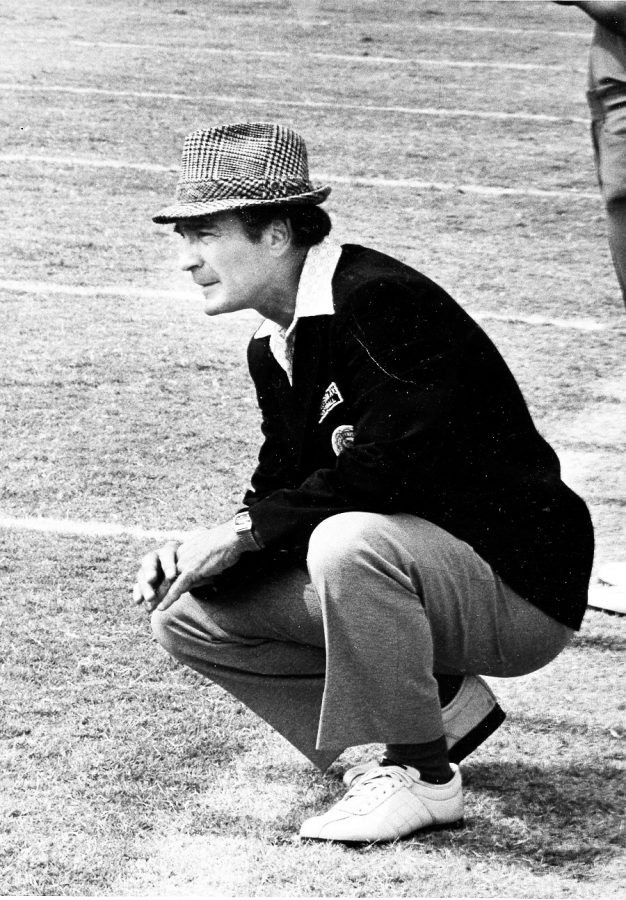Pratt: Remembering Topper legend Jimmy Feix
October 6, 2014
It’s hard to distinguish one single thought to describe a man like the late Jimmy Feix.
Trust me, I’ve asked many people trying to pinpoint it the past two days.
Many have said he was a man of integrity, a family man, a good Christian man and one that cared deeply about his players.
Then in a conversation with someone who watched every play Feix coached on the sidelines, one of the simplest, yet often overused, words came from Wes Strader’s mouth.
Great.
“In sports, we use a term ‘great’ real easy,” Strader said. “It was a great play, he’s a great player. There aren’t many greats. There aren’t many great plays, there aren’t many great athletes. If you had to pick out a great one, who would you pick? I don’t know, but Jimmy Feix was great in all those categories. He was a great person, great coach, great family man and great representative of the university.”
I’ll take his word for it. Strader called WKU games on the radio from 1963 through 2000. When someone who’s been around a program that long puts Feix as one of the greatest names of WKU athletics history, it’s hard to challenge that.
You’d be hard-pressed to find anyone in their right mind who wouldn’t put Feix on their Mt. Rushmore of Hilltopper greats alongside E.A. Diddle. The argument for the other two spots is hardly debatable (Johnny Oldham, Nick Denes, Jack Harbaugh, Paul Sanderford are the top options, in my opinion).
Even if you’re not familiar with the history of WKU athletics, it won’t take long to admire what Feix did for the university.
In 1952, Feix became WKU’s first football player to receive an All-American honor. As a senior quarterback, he led the Hilltoppers to their first ever bowl appearance with a 34-19 win over Arkansas State in the Refrigerator Bowl in Evansville, Ind.
After an NFL career with the New York Giants was cut short due to an injury, Feix joined the Air Force, where he served for four years. He later joined Nick Denes’ football staff as an assistant and took over as coach in 1968 for the next 16 years.
Feix’s head coaching record of 106-56-6 currently stands as the best in WKU history. It is a record that will stand for a long time.
Without even looking at the numbers, it doesn’t take long for someone to understand the greatness of Feix.
Just ask former coach David Elson — now a defensive backs coach at Southern Illinois — about his first spring practice as a defensive backs coach in 1996.
“I’m brand new on the job and I’m real into it, then all of a sudden, practice just stops,” Elson said. “Coach (Jack) Harbaugh stopped everything, pulled everybody up and there’s this guy standing there as he introduces Coach Feix. The big thing with him is he absolutely loved Western and the kids as much as anything. He was as loyal to that place as anybody could be.”
If Feix could physically show up, you’d bet your dollar he’d be there. Since he battled Parkinson’s disease during the final years of his life, former players called it a miracle to see him show enough strength to walk at midfield during a ceremony last season honoring the 40th anniversary of the 1973 D-II national runner-up team.
That’s just the surface of the stories that capture the epitome of what defined Feix. For now, and until someone convinces me otherwise, ‘great’ will suffice.
“He, athletically, was Mr. Western,” Strader said. “He’s the best known name outside (E.A.) Diddle. His contributions to the university, his reputation, the jobs that he did — everybody knew him and he knew everybody. Nobody loved it more than him. I would say that he’s great.”
Well said, Mr. Strader. Well said.













